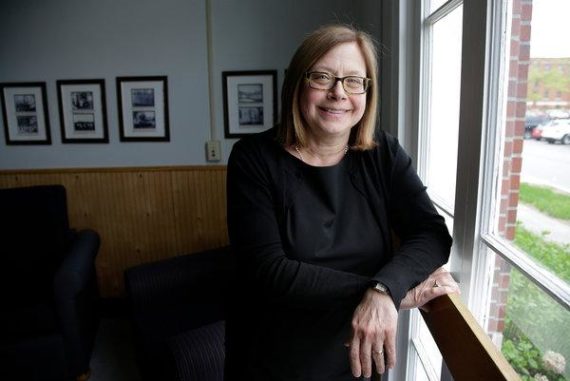
(11-6-18) In a recently published article, Dr. Elinore F. McCance-Katz, Assistant Secretary for Mental Health and Substance Use, explained how she and the Trump Administration intend to implement federal mental health and substance abuse programs. Her article in Psychiatric Services magazine’s October issue should appeal to both peer groups and supporters of Assisted Outpatient Treatment.
This is not an easy feat because several peer organizations oppose AOT, which they view as coercive treatment, and several AOT supporters question the value of peers, because several oppose AOT.
Before Dr. McCance-Katz took charge, the Substance Abuse and Mental Health Services Administration was perceived during testimony at congressional hearings as being strongly anti-AOT and strongly pro-peers.
Dr. McCance-Katz’s recent decision to reassign Paolo del Vecchio, director of SAMHSA’s Center for Mental Health Services (CMHS), was viewed by some of his supporters as a signal that the agency was shifting its focus from peer services and the recovery model of treatment in favor of a more traditional medical model. When Dr. McCance-Katz announced SAMHSA would re-examine the criteria it uses to declare a treatment program as “evidence based,” some peer leaders became nervous. Few scientific studies have been done about the value of peer services versus traditional services.
I am posting the key paragraph from Dr. McCance-Katz’s article where she discusses both peers and AOT. You can read the entire article here: SAMHSA New Directions McCance- Katz
A New Approach to Serious Mental Illness By Dr. McCance-Katz
SAMHSA will take a new approach to serious mental illness shifting efforts in the agency to focus on major issues affecting this population.
These efforts will include providing evidence based psychiatric treatment and supporting a collaborative care model with community resource providers, including peers and organizations that provide recovery supports.
SAMHSA will receive support for these efforts through the Interdepartmental Serious Mental Illness Coordinating Committee, which is a public-federal partnership that aims to improve services to adults living with serious mental illness and to young people living with serious emotional disturbance and their families.
SAMHSA will continue and expand programs designed to address mental illness in America, including suicide, which continues to take tens of thousands of lives every year. SAMHSA will help expand suicide prevention programs that also fund organizations that implement Zero Suicide, a program to train health care providers on how to ask about suicidality and make safety plans to get people to the necessary care.
SAMHSA continues its mental health court programs and has new programs offering diversion prior to arrest. AOT is now funded in several sites, but more must be done to educate providers and the public about the value of AOT programs with enriched psychosocial. Further, a new program of assertive community treatment will be funded in 2018.
One of the major successes we have had recently at SAMHSA was the appropriation of additional funding for Certified Community Behavioral Health Clinics, which require integrated care for mental and substance use disorders as well as for general health care. These programs, already established as demonstration programs in eight states, will be expanded to community organizations that will be able to provide the required integrated services and crisis services; peer and family supports; and psychiatric evaluation, diagnosis, treatment, and rehabilitation services.
This is a very exciting development because integrated care is the model that should be pursued for American Psychiatric Services Health care in general but is particularly important for those with disabling mental disorders.
These are important times for establishing new models that will use evidence-based care to manage the needs of Americans experiencing serious mental illness and substance use disorders. SAMHSA will play a key role in establishing these new care approaches and in preparing the behavioral health workforce. It is personally gratifying for me to have the opportunity to serve our people in this new role. I look forward to both the challenges and the metamorphosis of our health care system for those living with mental and substance use disorders in the United States.
Send correspondence to Dr. McCance-Katz (e-mail: elinore.mccance-katz@samhsa.hhs.gov).
Meanwhile, here is a link to a chart and article about National Trends in Peer Specialist Certification.
Natl Trends in Peer Specialist Certification
Full Disclosure: My s0n Kevin works as a peer specialist.



